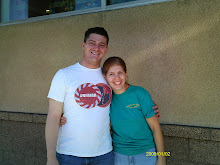“Ah, Jenny-pah,” I heard as the recognizable outline of my hagwon’s director came toward me. His long-sleeve Oxford shirt opened wide its arms as his gait stretched to fill the distance between us, each an obvious gesture of relief.
It was nearly 11:30 PM on my last night in Korea and I had been waiting for almost an hour. I rested on the black granite sill of Ramada Hotel’s business sign, the end of Maya Angelou’s childhood saga in my hand. Minutes before, along with a few other stragglers clinging to the coffee shop patio next door, I had been asked to find another place to loiter—so there I was in the cool night air, lingering. And I still had to pack.
“There’s been a misunderstanding between us,” my director assured nervously, his smile full of wavering resolve. “I thought you called to my wife and she told you.”
“No, I gave away my phone today,” I replied. “My friend has it. I’m sorry I didn’t tell you.”
By now my director’s hip rested on the same sill, half a meter from mine. From this perch he flopped, haphazardly but confidently, chirping the news. “I went to the tax office today,” he informed me brightly. “You will get your money within one week. Seven business days—so maybe next Tuesday.”
This from the man who quoted the fifteenth of June as my payday, only to have to back out of that promise days past due. This was the same man who stole from my check to pay his debts, and the man who thought it more convenient to lie to the government than be up-front about his business. The injustice of his actions was piling up in front of him. Having nursed a nagging sense of uneasy nausea all weekend, my stomach was still churning at his words.
“Don’t worry about the others,” he was saying now, referencing my co-workers. “You will get paid. You worked the best out of all of them.”
He already hadn’t paid an entire year’s worth of pension money, nor was he prepared to give me the foreigner’s severance package stipulated by Korean law. One poor fiscal choice after another had led to this—a closed school and teachers left to find work across the Pacific. But not only did the school have to suffer; now so did his family. What suddenly made his word his bond now?
Nothing in my heart wanted to ask a just and jealous God to bless the work of a man who would be so irresponsible. I bit my tongue as I said what came next. “Before we go, Mr. Chung, can I pray for you?”
He laughed off the question self-consciously, then consented. “You Christian? Cath-oh-lick? My wife,” he nodded proudly. “She Christian.” He gave me his hand as I bowed my head respectfully.
“Lord Jesus, we lift up Mr. Chung and his family,” I began. “We know that they are going through difficult circumstances—” Circumstances they brought on themselves, I wanted to scream— “but we ask that you would strengthen them. If they have to walk through these consequences, then give them endurance.”
As I prayed, I thought of those that had been caught in sin in the presence of Jesus: Instead of pounding them with religion, He kept showing mercy. I remembered His words to the adulterous woman. “Lord, Your Word says that You told people to go and sin no more.”
I didn’t want forgiveness—I wanted justice. I wanted him to deeply understand his crimes. You have an obligation to be righteous, I wanted to tell him. I wanted to bully him into doing right.
“And, Lord,” my mouth framed, nearly against my own will, “I ask that Mr. Chung would sin no more.”
I felt a little dubious as I finished, somewhat dishonest with my own intentions. My heart betrayed my own thoughts, even as my words had relayed the opposite. I certainly wasn’t worthy of any thanks offered to me.
As I crept up to December’s apartment one last time to finish preparations for the morning, I again cried out to God—this time, for myself. “Lord, I need Your heart for these,” I confessed. “Not my own.” I still harbored feelings of condemnation towards him, but what I needed most was a sense of the Lord’s divine mercy holding back the tide of just deserts.
Only the One without spot or blemish would be so worthy as to cast stones of judgment. If Mr. Chung had been culpable in anything, I was non the less. And yet He says to the guilty, “Then neither do I condemn you. So go, and sin no more.”
Subscribe to:
Post Comments (Atom)

No comments:
Post a Comment